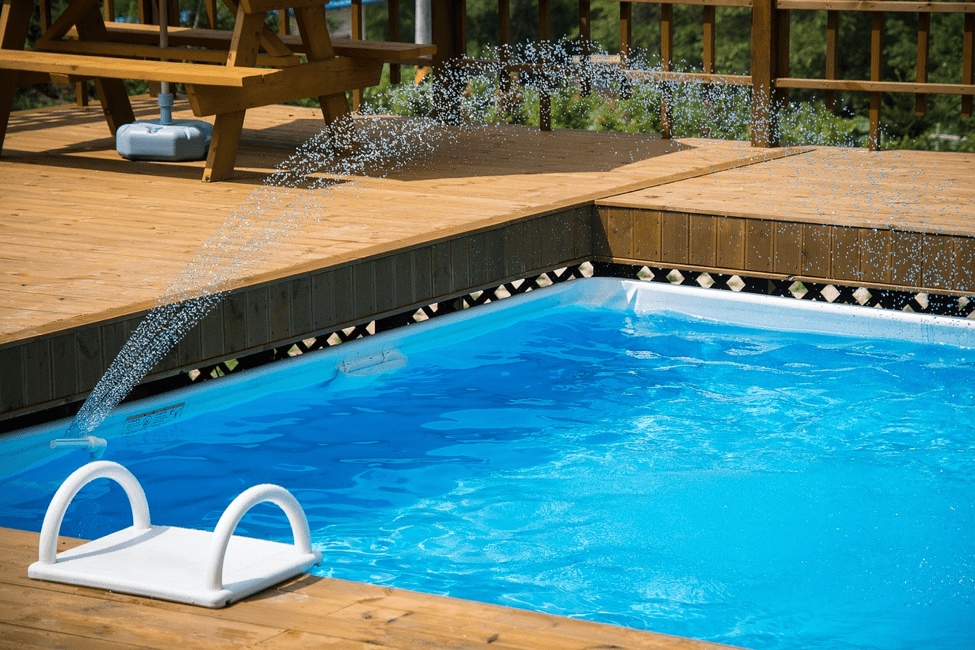How to Repair a Pool Plumbing Leak
Detect, Repair, and Enjoy!
Pools naturally lose water to evaporation and splash wastewater. If you find that you need to add more than a couple of inches of water each week, it is likely there is a leak somewhere in the pool system.
Pool leaks can happen through any of the sealants, fittings or accessories. The more the pool is used, the more wear and tear can create problems. Ignoring leaks will eventually turn into costly problems that stem from the structural elements, such as the fill dirt that supports the walls and deck.
If you suspect a leak, this guide will help you narrow down the possibilities before you attempt to fix it yourself or call a plumbing company. Not all plumbing issues can be do-it-yourself projects, but there are some pool leaks that can be easily fixed.
Does the Pool Leak with the Equipment On or Off?
If the leak only happens when the equipment is turned on then it may be a pressure-side return leak. When the filter pump is on check the pressure side to see if there are small drips or sprays. Take a look at the waste or backwash line to see if the water is consistently running. Also, take a look for any wet spots in the yard or on the side of the pool where the plumbing returns water to the pool.
If the pool is leaking only when the equipment is turned off this generally indicates a suction-side leak or a leak in the pipes that bring water from the pool. This type of leak will make your pool lose water more quickly than normal. It’s a good idea to use a marker or tape to keep track of the water levels.
Does the Pool Leak all of the Time?
If the pool is leaking all of the time, there may be a more severe problem than faulty or worn-out plumbing accessories. There may be a leak from the pool’s structure, such as cracks in the plaster. The most common leak is a separation between the plastic skimmer and the concrete pool which can easily be fixed with pool putty. Underwater lights can also be the instigator, as they do eventually leak. Since this problem can be more serious, a leak detection system may be the most expedient next step.
Underground Plumbing
Most pool leaks are not caused by the underground plumbing, thank goodness. To eliminate this possibility, shut off the pump and plug the lines. If the leaks continue, you know it is not the pipes. If it stops leaking then unplug each line individually to see if it can be attributed to one pipe or another. A pool pressure test can be used to test any underground pipes once you have narrowed it down.
Are There Leaks in the Pool?
Most concrete pools have surface cracking, but generally without leaks. Look for large and deep cracks and if you identify any suspicious cracks a dye test can be used to confirm. Luckily cracks can be filled with pool putty, silicone or plaster mix. For extra-large cracks on the floor or walls of the pool, a more comprehensive fix would include injected sealant and plaster mix.
Any Leaks at the Equipment Pad?
If there is a loss in the water level of the pool, then check the equipment pad area for moisture. We have seen it before, as it is not uncommon for the filter, pump, heater, and valves to spring little leaks. It isn’t the small drips we worry about, it is the sprays and trickles that may be the cause of the problem.
Don’t Settle for a Pool Leak
Over time, a pool’s structure and plumbing are bound to have issues. When they are taken care of immediately, they won’t accumulate into a big, expensive problem in the future. Our plumbing experts at New Canadian Drain & Plumbing are happy to discuss issues both large and small. Our mission is to provide a full array of plumbing services to all of our valuable customers. Call us today for all of your Toronto plumbing needs – 416-651-2990 or contact us here.
Emergency plumbing services are available 24//7.



